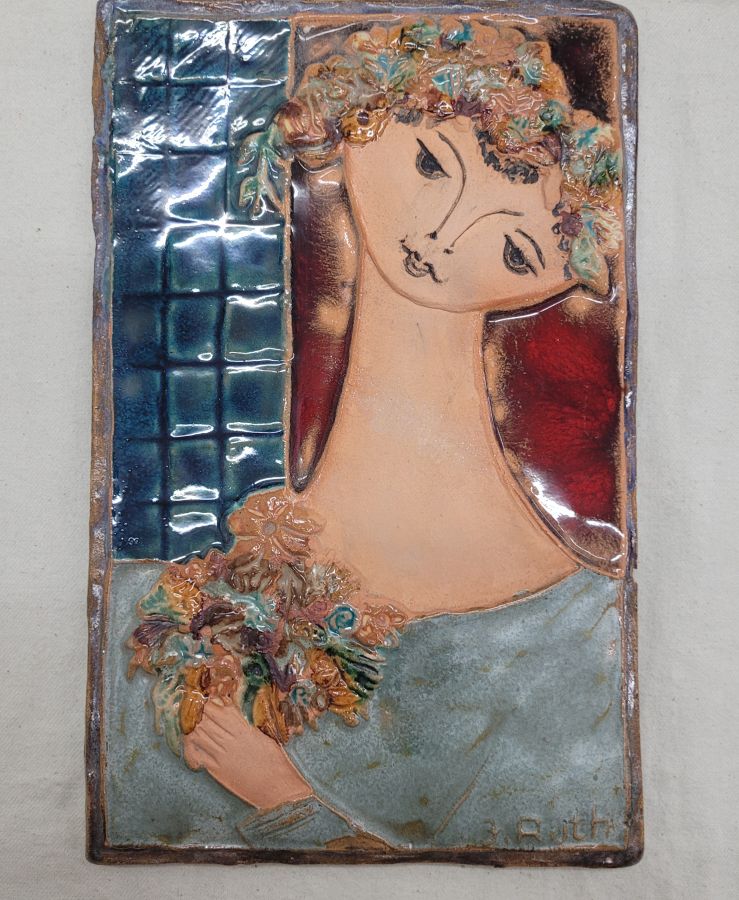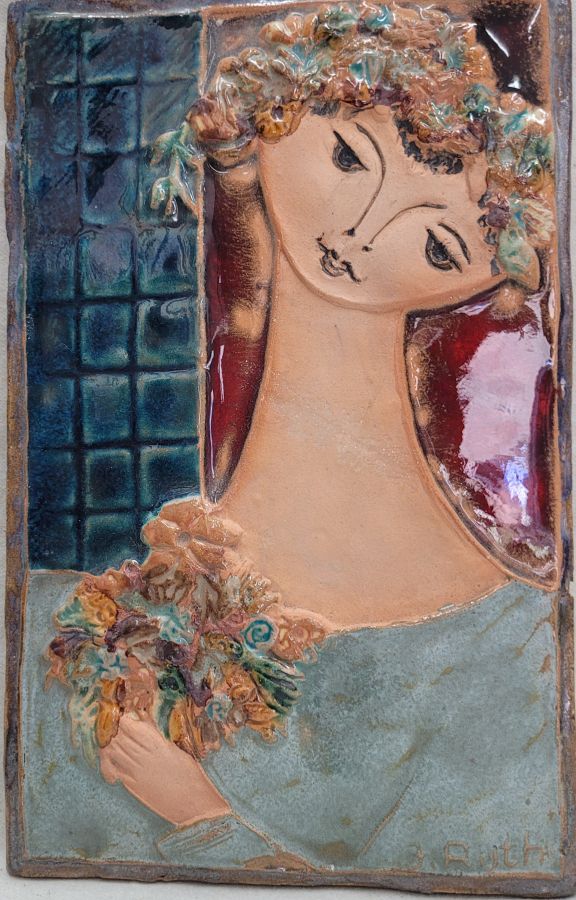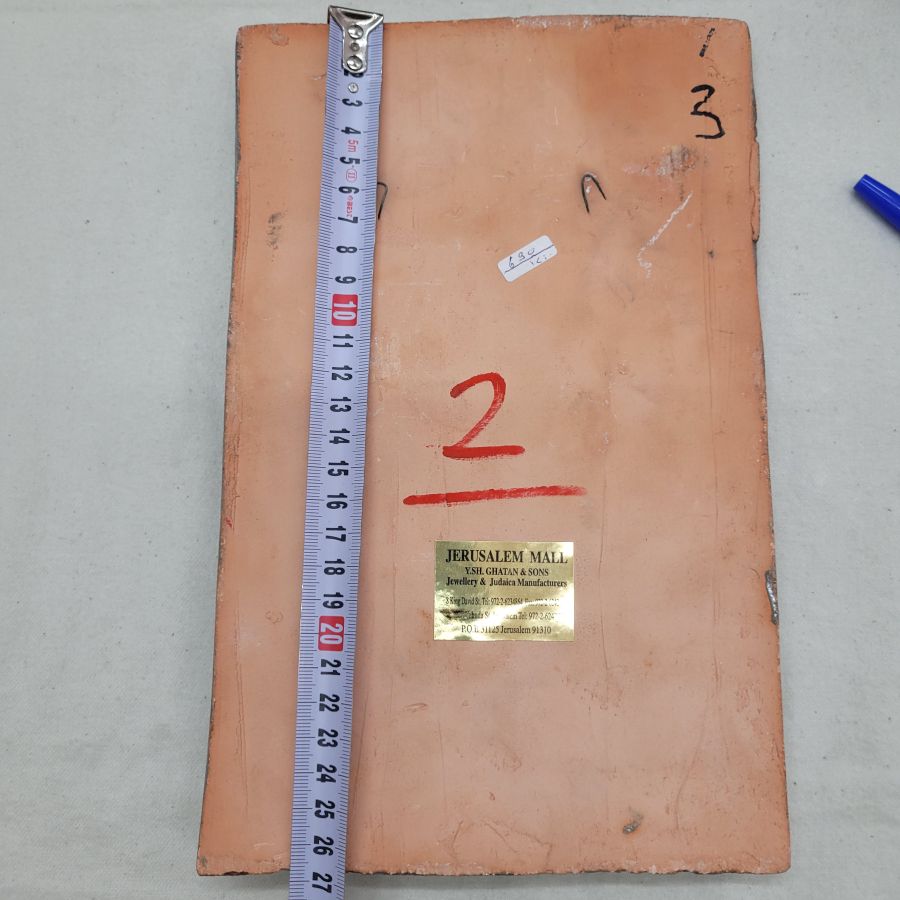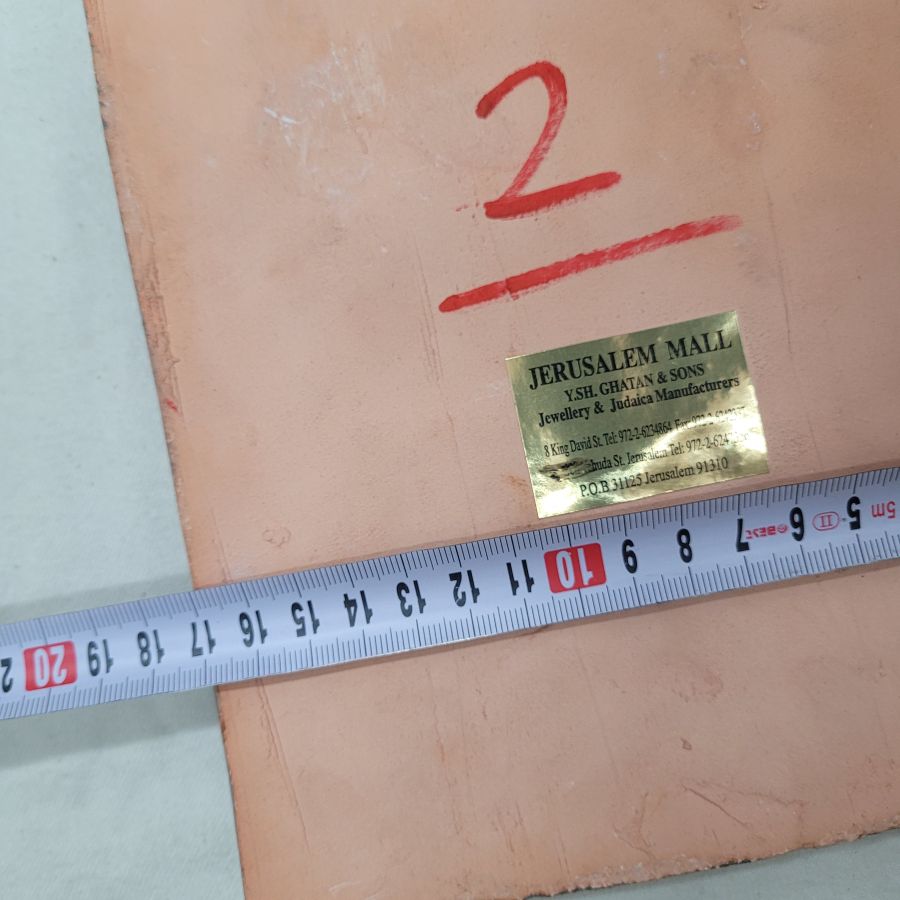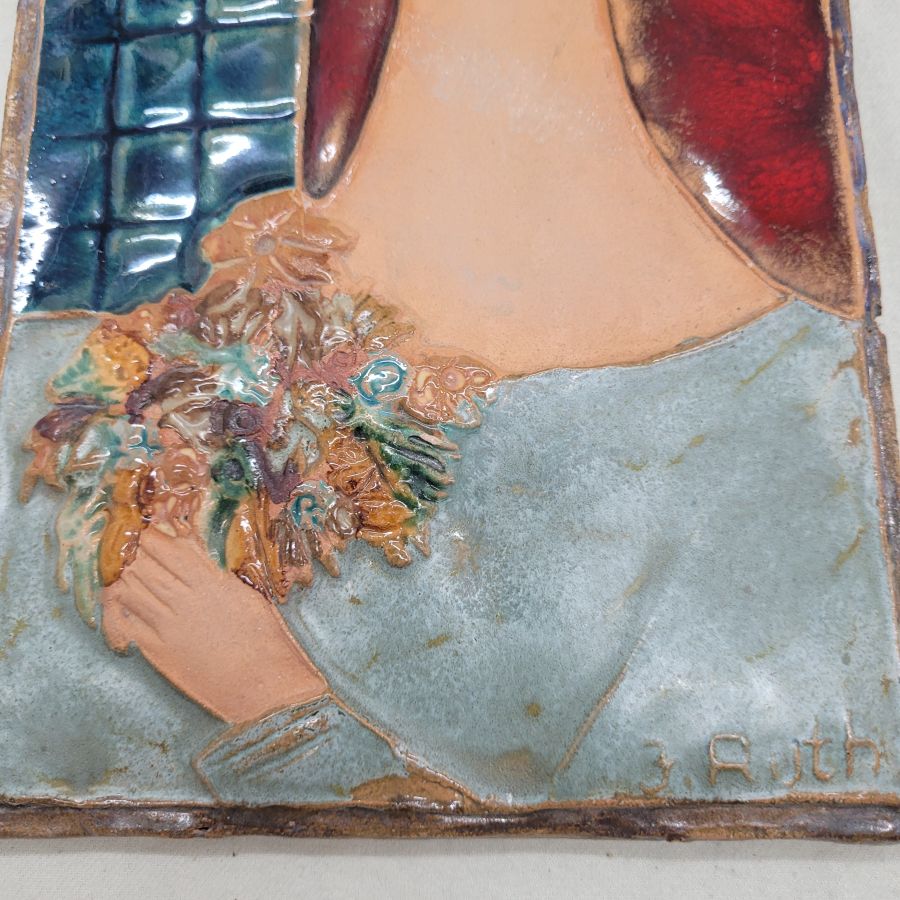Bathsheba wedding bouquet tile
$285.00
Ruth Factor glazed ceramic Bathsheba wedding bouquet tile. Handmade glazed ceramic Bathsheba wedding bouquet tile by Ruth Factor. Bathsheba got her wedding flower bouquet from King David.
Dimension 17 cm X 26 cm approximately.
https://www.ebay.com/itm/164674352703
https://www.ebay.com/itm/164699683532
https://www.ebay.com/itm/164632463311
https://www.ebay.com/itm/164721449991
https://www.instagram.com/y.sh.ghatan/
https://www.pinterest.com/samyghatan/fine-art-oil-painting-canvas-3-yeshiva-boys/
https://www.ebay.com/itm/163774230902
https://www.ebay.com/itm/163635074066
https://www.ebay.com/itm/163783250743
Mrs. Ruth Factor Biography
Born in 1037 in Ramat Gan, Israel married and mother of two daughters.
Studied ceramics by A. Doctor , leading sculpture and Z. Guri noted ceramist in Israel. In the years 73-77 she has participated courses at the Ramat Gan Art school, where she specialized her skills in ceramic sculptures and modern art. There she developed her art works by specializing in ceramic reliefs ranging from miniature pictures up to building ornaments.
Reliefs are molded of brown earthen local clay, burned to bisque at 900 degrees C , and after that it has to be hand painted with different glazes and colors, and again be burned in the kiln for the second time to 1050 degrees C. Ruth Factor signature is on each tile she makes as can be seen in photos.
The artist’s works are being exhibited in many galleries in Israel, United States of America , Germany Switzerland Holland and New Zealand.
The art of glazed ceramic tiles is dated back to the Egyptian culture in the Middle East, the earliest evidence of ceramic tile dates back 4,700 BCE. There are followers of that amazing and colorful design in Assyria and Babylon; back to the 7th Century BCE.
The Islamic and followed by the Persians revived and developed the art using more updated material and technique . One of the invention was the use of glazing the tiles without affecting the painting under it during the burning in the furnace, The art of tiling evolved much later in the European countries and the rest of the world , becoming popular in Europe during the eleventh century. Mosaic flooring and panels was a must in rich house of eminences and powerful people and Christian churches and monasteries. Then much later it was used by the wealthy to decorate and beautify their homes. The Spanish and Italians and the Netherlands made their designs each one by their own tastes and expressed their culture through the tile .

